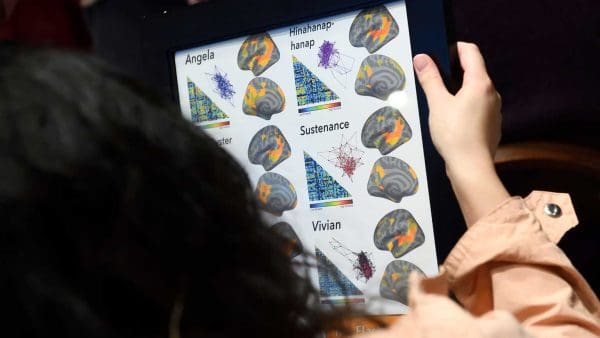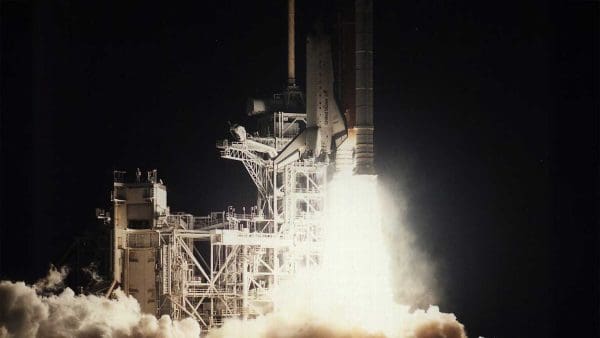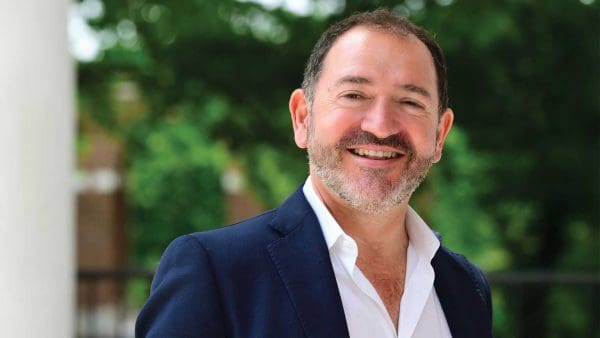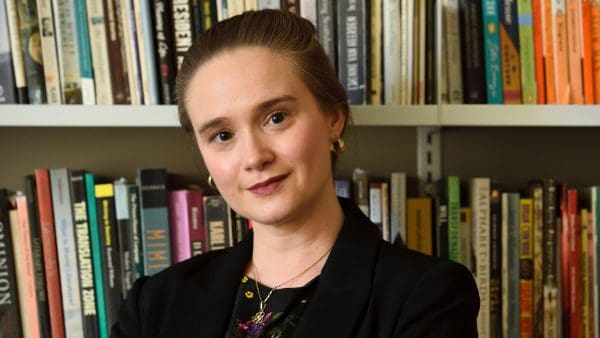
Growing up on Staten Island, Chris Celenza played the trumpet and thought he’d become a professional musician later in life. Then he wrestled in high school and college, and planned to become a coach. “I tended to get very focused on whatever I was involved in,” says Celenza, who was named James B. Knapp Dean of the Krieger School last October.
Similarly, since his first taste of administration as director of the American Academy in Rome in 2010–14, Celenza has thrown himself into administrative work, which marries his passion for helping people flourish in institutional settings with his love for the history of scholarship.
Celenza comes to the Krieger School deanship from Georgetown University, where he served as dean of Georgetown College from 2017 to 2020. But his arrival is also a homecoming, as he first joined the Krieger School faculty in 2005 and went on to hold several leadership roles. He is currently also a faculty member affiliated with the history and classics departments.
Celenza devotes an hour each morning to a current scholarly venture—for now, a short history of the arts and sciences. Today’s standard university structure traces its roots to the 13th century, he notes, and blossomed in the 19th century when a wide variety of disciplines joined medicine, theology, and law at the doctoral level.
What unites them all is the pursuit of truth. In this polarized world in which we’re living—and we’re living through a diminution of trust in institutions—I think the arts and sciences really have something to tell us.
Christopher S. Celenza
Celenza’s own higher education began at SUNY-Albany, where he earned a BA/MA in history. While earning a PhD in history at Duke, he received a Fulbright to study in Italy and a fellowship to spend a year at the American Academy in Rome (AAR). He then embarked on a second PhD at the University of Hamburg.
Celenza remembers with reverence long days in the awe-inspiring Vatican Library during both stints at the AAR. The AAR also became a model for him of the power of interdisciplinary collaboration—one of the pillars of his vision for the Krieger School.
Celenza’s overarching vision for the Krieger School is one of community; a frequent refrain is that he wants students and faculty to feel they belong at the school, but also that the school belongs to them. He plans to build further on many of the school’s ongoing priorities, including undergraduate research, neuroscience, artificial intelligence, quantum materials, and public social science, and he hopes to bring the arts—both Hopkins- and community-based—more deeply into the lives of Krieger School students. “You can recognize a shared humanity with the arts that sometimes you can’t do with other disciplines,” he says.
Universities have a critical role in an area that has always fascinated him and is now at a turning point, Celenza says: the ways people interact with information. In ancient times, he explains, “books” were cumbersome papyrus scrolls, so people often just used their memories instead. Books then evolved into the codex format we know today, but their animal skin pages were prohibitively expensive, which continued to favor memory. The emergence of paper and then moveable type made books far more accessible, but by no means guaranteed their accuracy—instead, circles of friends relied on one another to vouch for the truth of a publication.
“The authenticity resided in the social network and not in the artifact of the book, and I feel like that’s kind of where we’re at now,” Celenza says. “When we look at how people use Instagram or Snapchat or Twitter, a lot of it is about these communities that are forming, and the social bond is what gives it its truth value.
“We need to address that. We have to engage with our young people because they’re going to be our leaders going forward, and as someone who’s studied the history of information, I actually think we’re at a moment right now where we have to learn to ‘read’ in a new way.”




